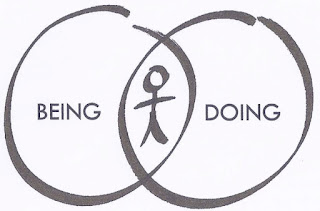Tempus Fugit Memento Mori
“You also must be prepared, for
at an hour you do not expect, the Son of Man will come.”
– Luke 12:40
Several years ago I had a dream.
It was an incredibly vivid dream. It was about the end of the world.
I was in a house busy with nothing in particular. Suddenly there was a loud noise outside, almost like a siren. In fact, if you’ve seen the Tom Cruise version of War of the Worlds it was similar to the horns that the alien tripods used. I went outside to see what was going on. The house was on a hill in the middle of a green field. The sky was nearly cloudless a bright blue like a mid-summer’s day. As I went outside I looked up at the sky and suddenly I saw it being peeled back like someone peeling an orange. As the sky was being ripped open, it revealed a bright almost perfect golden light flooding in from behind it. I knew immediately that it was the Second Coming, the return of Jesus, the end of the world and Judgment Day. I felt immediate conviction and remorse for my sins and fell on my face. Then I woke up.
I was in a house busy with nothing in particular. Suddenly there was a loud noise outside, almost like a siren. In fact, if you’ve seen the Tom Cruise version of War of the Worlds it was similar to the horns that the alien tripods used. I went outside to see what was going on. The house was on a hill in the middle of a green field. The sky was nearly cloudless a bright blue like a mid-summer’s day. As I went outside I looked up at the sky and suddenly I saw it being peeled back like someone peeling an orange. As the sky was being ripped open, it revealed a bright almost perfect golden light flooding in from behind it. I knew immediately that it was the Second Coming, the return of Jesus, the end of the world and Judgment Day. I felt immediate conviction and remorse for my sins and fell on my face. Then I woke up.
In Sunday’s Gospel (19th
Sunday of Ordinary time) Jesus issues a warning to his disciples, “You also
must be prepared, for at an hour you do not expect, the Son of Man will come.” It
is a call to vigilance and preparation. No one knows when the end will come. As
my grandfather used to say, “The end of the world comes for somebody every day.”
We cannot know when Christ will return, nor can we know when we may come to the
end of our days. One thing is certain, that we should be living our lives in
such a way that we are prepared to meet the end at any moment.
There’s a Latin phrase, tempus fugit, memento mori. It means, “Time
flies, remember your death.” We don’t like to think about mortality and death.
In a way it is ironic that so much of our culture is given over to the Culture
of Death, yet that very culture does all that it can to avoid the topic. I suspect
that one reason we try to avoid the topic of death is that it conjures up
notions of accountability. When faced with death we are compelled to examine
our lives and consider our virtues and vices. We ponder how we have lived and
loved, what we spent our time and treasure on, and the choices we wish we could
revisit. Believers and unbelievers alike typically go through these same
reflections. We all recognize the face of our mortality as the great reckoning
of our lives.
As Catholic Christians we profess
every week at mass that we believe Jesus “will come again in glory to judge the
living and the dead.” We confess this truth with our lips, but find it so hard
to allow these words to mold our conduct. The Church speaks of the four last
things: death, judgment, heaven and hell. We convince ourselves that these are
far off concerns for another day, but Jesus warns us that we must consider
these as imminent. Do we truly believe that we could witness Christ’s return
within our lifetime? Do we consider that it could happen at any moment? What
impact would that have on our lives if we took the words of Jesus to heart and
began to live our lives in such a way that we were ready to meet him at any
moment? Would we be more resolute in
loving and worshiping God? Would we make more of an effort to love other
people? Would we hold onto material things with open hands rather than clinched
fists? Would we allow the love of God to penetrate our hearts and transform our
lives?
In conclusion, consider the words
of St. Clare of Assisi, whose feast day was August 11th:
"We become what we love and who we love shapes what we become. If we love things, we become a thing. If we love nothing, we become nothing. Imitation is not a literal mimicking of Christ, rather it means becoming the image of the beloved, an image disclosed through transformation. This means we are to become vessels of God´s compassionate love for others."




Comments